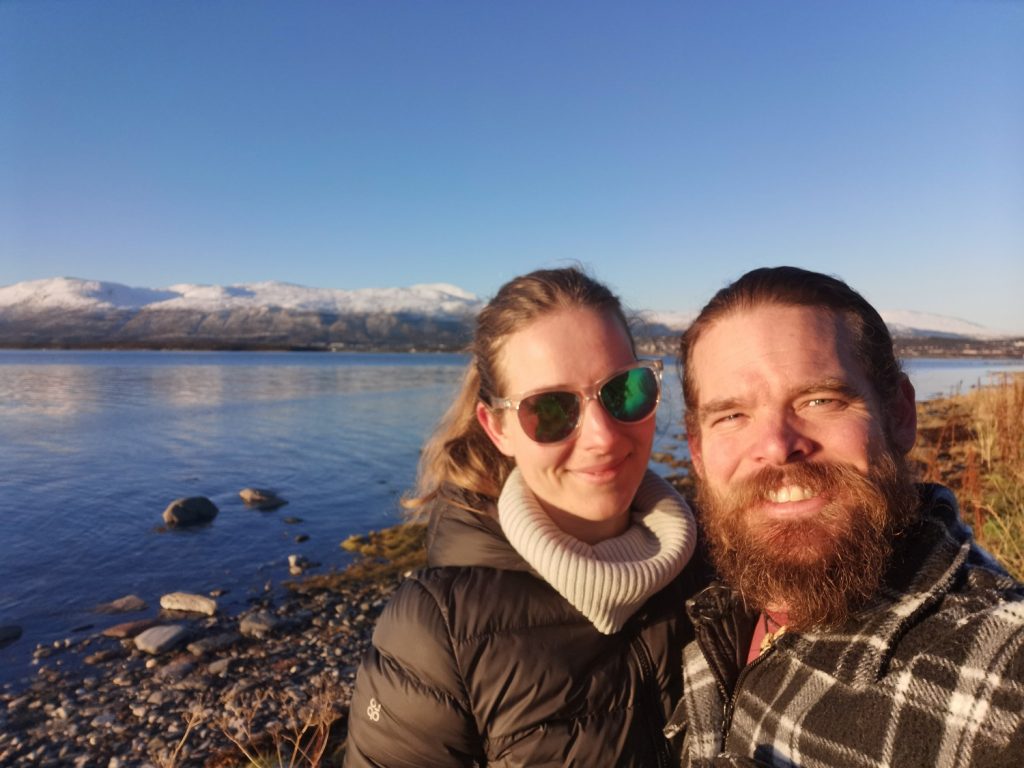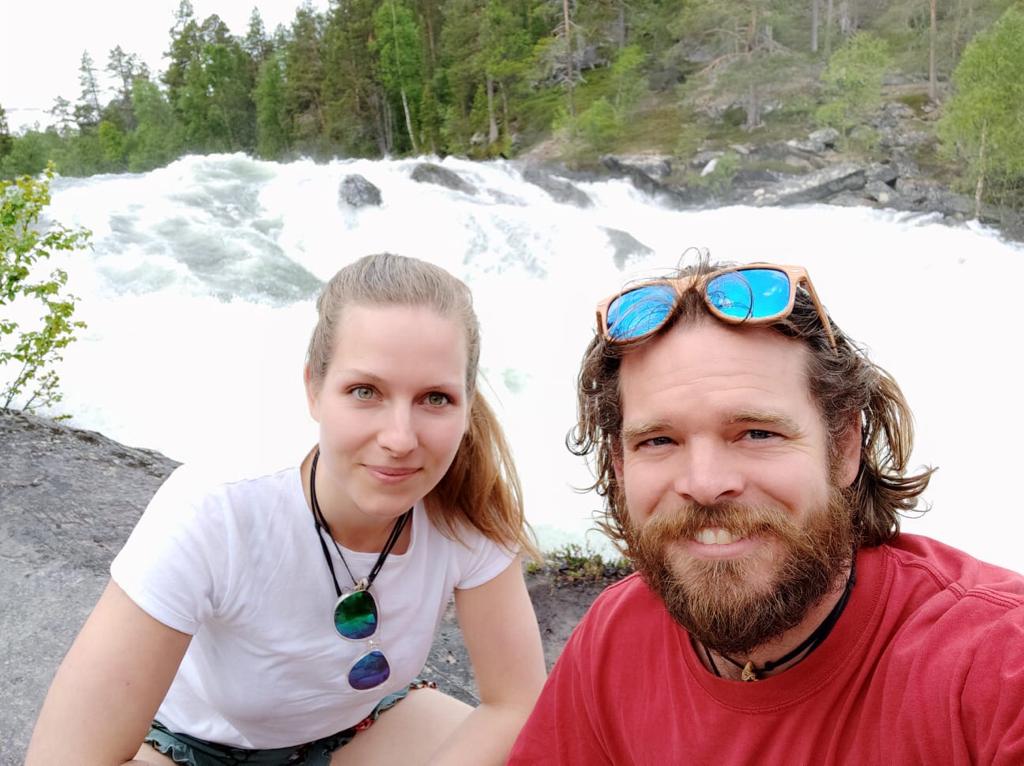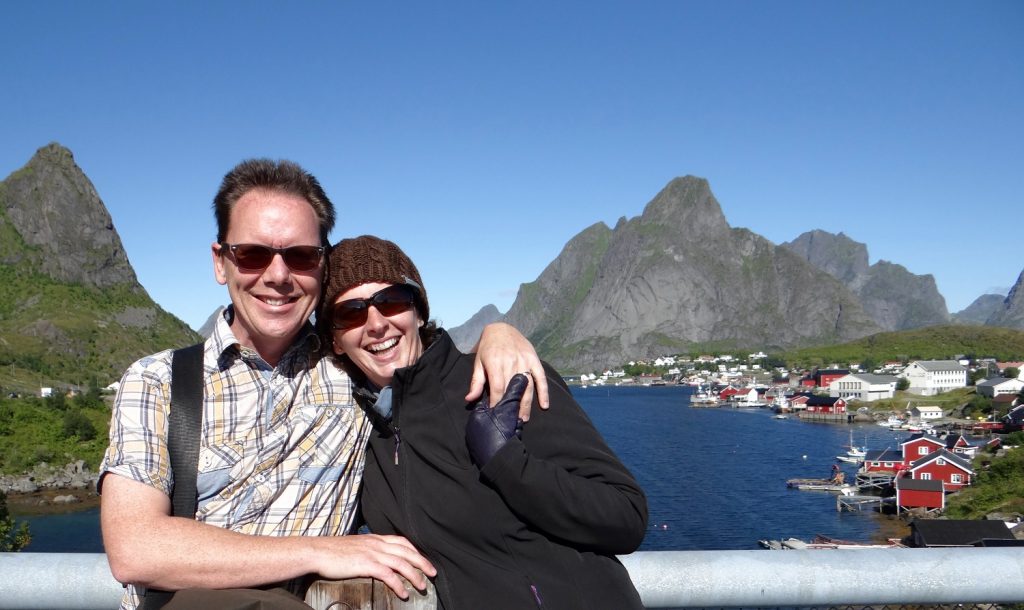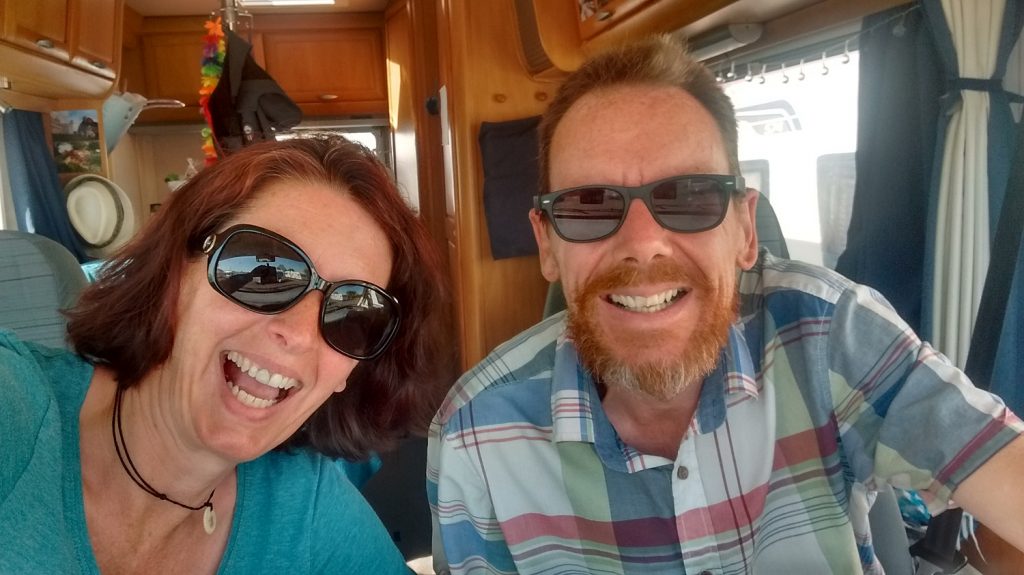![]() (English version)
(English version)
Ivon y Sii: Una pareja de República Checa y Australia que ha decidido vivir en una furgoneta Mercedes Sprinter en el ártico de Noruega. Gracias por vuestra sinceridad, honestidad y enfoque positivo de la vida. Podemos echar un vistazo a su estilo de vida.
- Por favor, presentaos y escribid algunos datos interesantes sobre vosotros.
Somos Sii e Ivon, yo (Sii) soy de Australia (me fui hace casi 6 años para viajar por el mundo) e Ivon es de República Checa (se fue hace 5 años para estudiar en Dinamarca). Hemos estado trabajando en el sector turístico aquí en Noruega durante algunos años hasta ahora. Covid-19 ha afectado nuestros trabajos habituales y, al mismo tiempo, ha brindado la oportunidad emprender otras aventuras, por lo que Ivon ahora trabaja por internet mientras dirige su propio negocio como proveedor independiente de servicios de recursos humanos.
Ahora estoy empezando un nuevo proyecto con una empresa de filmación y trabajamos en el canal de YouTube: North and Beyond, además de poner en marcha una empresa de turismo que empezará a funcionar en invierno de 2021/22 en la región de Finmark, en el norte de Noruega. Ahora vivimos a tiempo completo en una Mercedes Sprinter de 2010 la cual Randal Silvandal.
- ¿Por qué habéis decidido vivir a tiempo completo en una furgoneta?¿Qué os motivó a tomar esa decisión?
Bueno, para mí es algo que hice por primera vez en 2002 cuando vivía en una furgoneta – lavandería en Londres y es algo que siempre he querido volver a probar. Me gusta estar en constante movimiento. Es agradable poder llevar todas tus cosas contigo. Ninguno de los dos está preparado todavía para establecerse en un lugar fijo, así que tiene sentido, especialmente porque tenemos un perro husky llamado «Lo siento» (sé que es un nombre ridículo, jajaja).
- ¿Qué es lo mejor y lo peor de vuestro estilo de vida?
Lo mejor… Somos propietarios, jajaja, podemos vivir relativamente libre aquí en Noruega (tenemos un baño completo con ducha y un váter, también un horno y una estufa… en mi opinión imprescindible). Podemos visitar lugares nuevos y no tenemos que preocuparnos por el alojamiento o el equipaje… nosotros lo llevamos todo (incluso el fregadero de la cocina). Ahora no tenemos que pagar para alojarnos y podemos ahorrar dinero.
Lo peor… Hay que aprender a vivir en un espacio tan pequeño… con un perro… y mantenerlo limpio… encontrar un lugar para aparcar (nuestra furgoneta es grande, mide 7,35 metros de largo) mantener las baterías cargadas y el depósito con agua… y lo peor de todo es un clima terrible, jajaja. Lo bueno supera con creces a lo malo, pero solo se necesita tiempo para acostumbrarse a este estilo de vida.
- ¿Cuál crees que es la mejor forma de viajar?¿Cuáles son los mejores lugares del mundo para vivir?
jajaja si lo supiéramos probablemente no viviríamos en Randal (nuestra furgoneta)… pero en realidad no creemos que haya una mejor manera de viajar… los deseos de viajar cambian, no puedes simplemente elegir una forma y seguir con ella, es genial tener opciones. En cuanto al mejor lugar del mundo, de nuevo ninguno de nosotros lo ha encontrado… Nos encanta el Ártico… pero no quiero vivir aquí todo el año porque es demasiado extremo, me encantan las Islas Canarias e Ivon ama Madeira pero a ninguno de los dos nos gusta un auténtico invierno… Eslovaquia es como mi segundo hogar para mí. La gente y la cultura son increíbles… pero era difícil ganarse la vida allí, Australia es impresionante pero está tan lejos de todas partes… es por eso que todavía estamos viajando, en el mundo hay de todo, no solo en un lugar.
- ¿Cuánto tiempo se tarda en transformar una furgoneta en una vivienda?¿Si pudieras cambiar algo de tu furgoneta qué sería?
Depende de tus habilidades, tiempo disponible y recursos… Soy carpintero de oficio y tuve prácticamente tiempo completo para dedicarlo a la camperización gracias al coronavirus, sin embargo, conseguir materiales y los accesorios y equipos adecuados aquí en la ciudad de Tromsø en Noruega fue muy difícil. Comencé la camperización en abril de 2020 y en agosto de 2020 Randal estaba preparada con lo esencial para vivir en ella… pero aún no he terminado. Todavía necesito colocar puertas en los armario y algunos retoques finales, pero la mayor parte ya está terminado. Si hubiera hecho la camperización en Oslo o en el sur de Europa, habría sido mucho más fácil y rápido.
Los cambios que nos gustaría hacer sería diseñar mejor el sistema de calefacción para calentar de manera más uniforme. Todavía estamos trabajando en la furgoneta y nos gustaría colocar asientos giratorios en la parte delantera para conseguir más espacio útil.
- ¿Has realizado algún cambio o modificación en vuestra furgoneta para adaptarla al clima del ártico?
Sí, en el techo de la furgoneta he colocado 50 mm de aislamiento, 70 mm en las paredes y 50 mm en el suelo y tenemos un calentador diésel dual de 6kw para calentar agua y la furgoneta. Tenemos un depósito de agua flexible de 200 litros dentro de la furgoneta (hice esto para evitar que el agua se congele). Tenemos una cortina para evitar que el aire frío de la cabina entre en la parte trasera y ahora estoy haciendo una manta aislante para cubrir el exterior de la cabina y detener la condensación y el frío que entra en la parte delantera de la furgoneta. También tenemos entradas y salidas de ventilación, para mantener la circulación de aire fresco en la camioneta durante las noches.
- ¿Os gustaría viajar fuera de Europa? Si es así, ¿en qué país os gustaría conducir vuestra furgoneta?
Sin duda, a ambos nos encantaría visitar Canadá y Estados Unidos, pero también viajar a través de los países «stán» como por ejemplo: Turkmenistán, Kazajistán, Uzbekistán… sería un viaje increíble.
- ¿Podéis contarnos algunos de vuestros proyectos futuros relacionados con vuestro estilo de vida nómada?
Ahora estamos esperando que el mundo se abra de nuevo, cuando lo haga, nos gustaría ir a través de Rusia y Ucrania a través de los bloques del Lejano Oriente y simplemente experimentar allí las diferentes culturas.
- Lleváis varios años viviendo en Noruega y, sin duda, conocéis bien el país. ¿Cuáles son algunos de los mejores lugares para visitar en Noruega?
Hmmmm…
- Nyksund
- Costa oeste de Andøya
- Las islas Lofoten
- Región de Oppdal
- El valle de Pasvik
- Los alpes de Lyngen
- Kongsfjord
Hemos pasado la mayor parte de nuestro tiempo en el extremo norte de Noruega, por lo que lamentablemente no podemos añadir más. Estábamos planeando ir al sur este verano… tal vez podamos el año que viene jajaja.
- ¿Qué consejo le daríais a vuestros fans que estén considerando cambiar su estilo de vida y vivir como vosotros?
Vanlife no es como en Instagram. No pienses que todos los días serán como en Instagram, hay momentos hermosos pero no todos los días… como en cualquier modo de vida. Este estilo de vida es increíble, pero no es para todo el mundo, y en invierno aquí en el Ártico es un desafío encontrar un lugar para pasar la noche. Investiga antes para asegurarte que te sientes bien viviendo en espacios reducidos, y disfruta de la vida al aire libre, ya que ahí es donde pasarás el 90% de tu tiempo.
North-beyond.com







